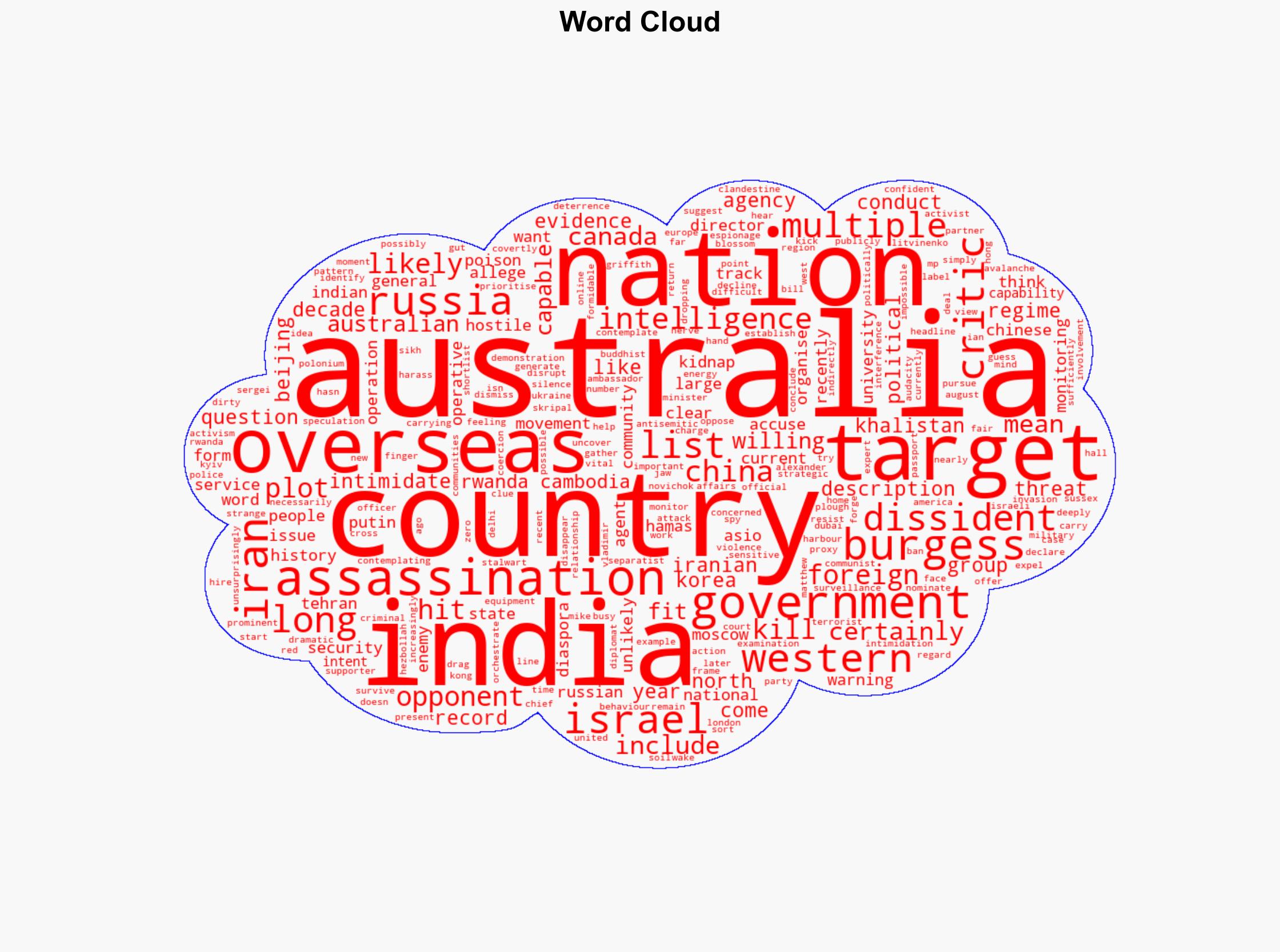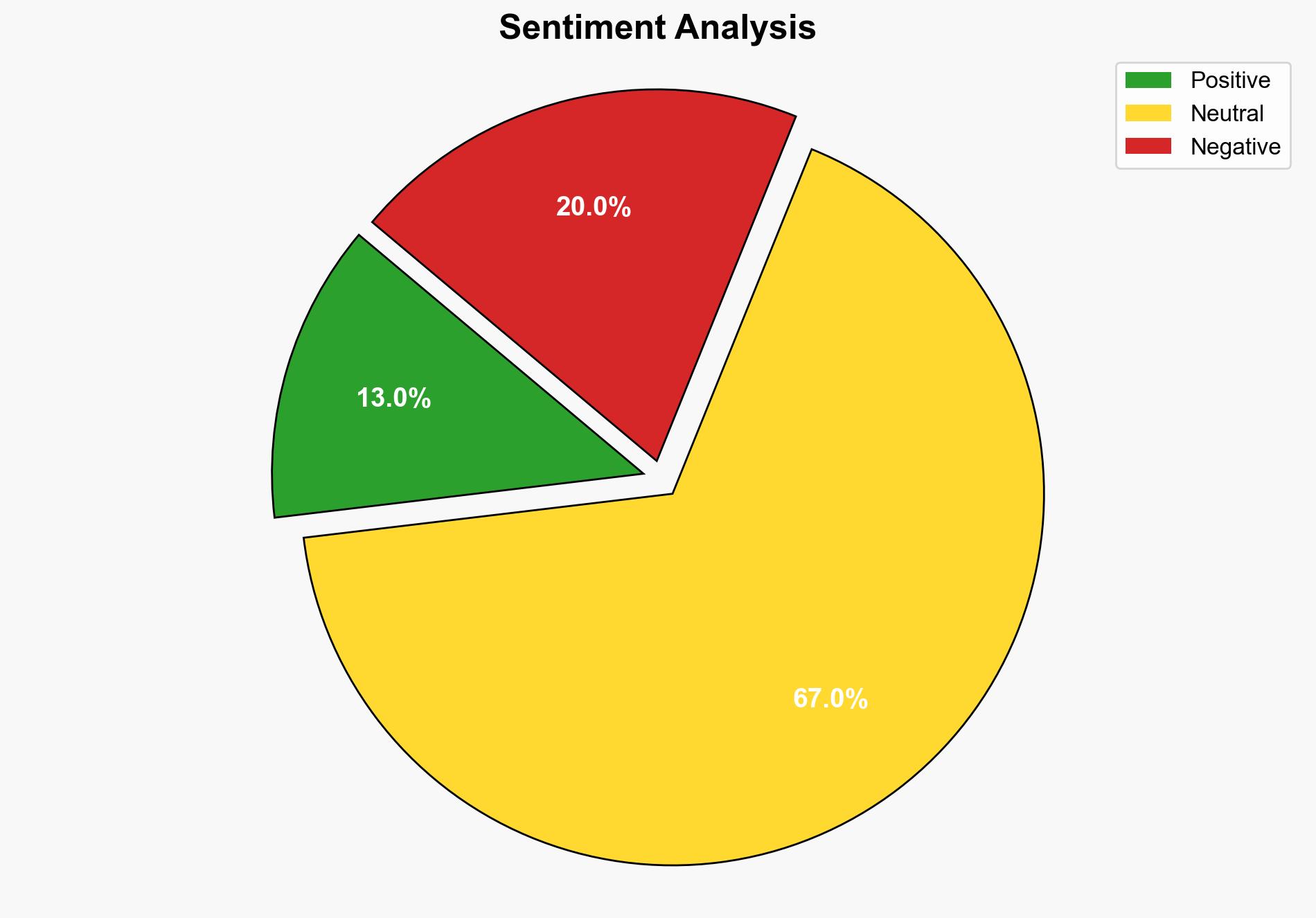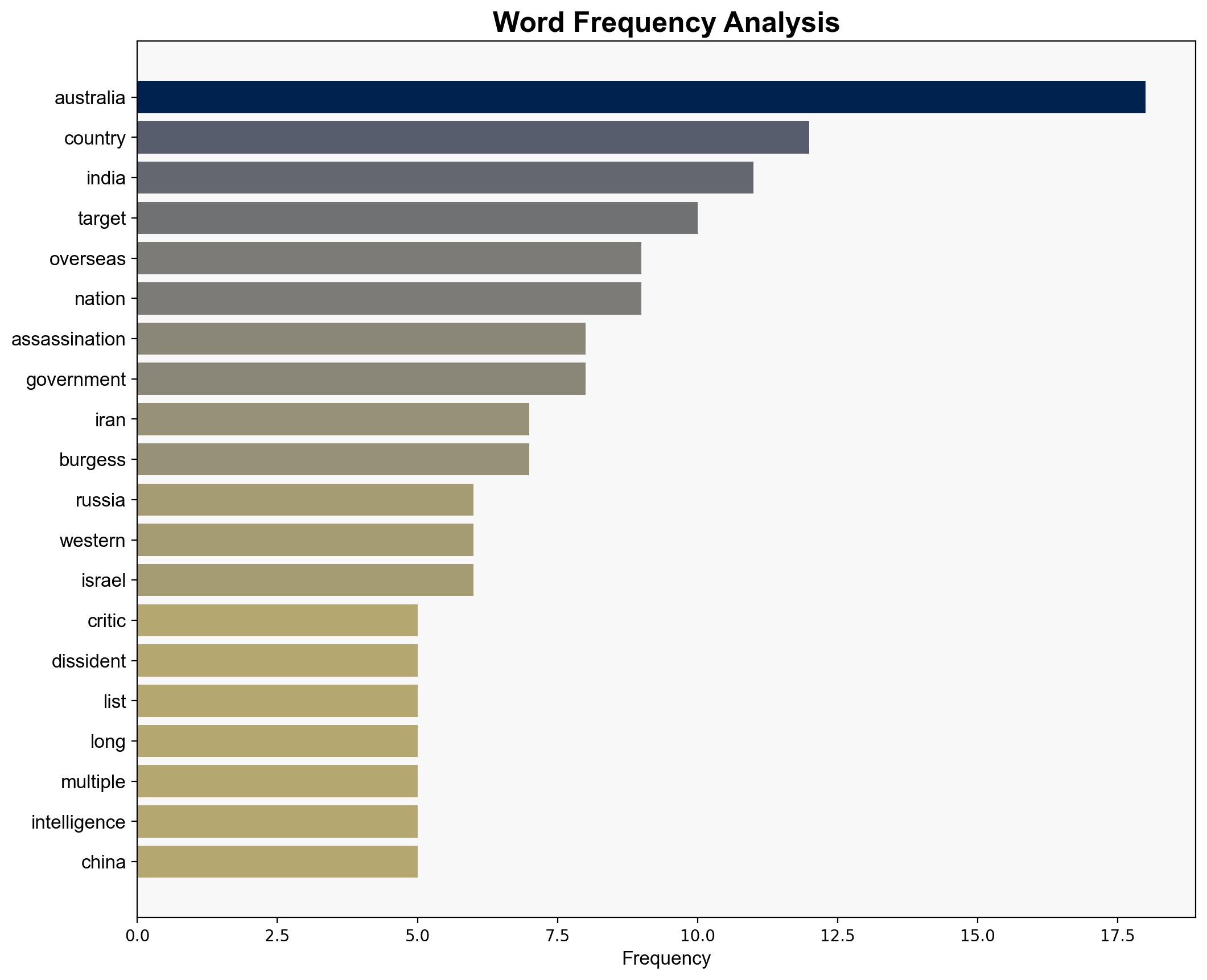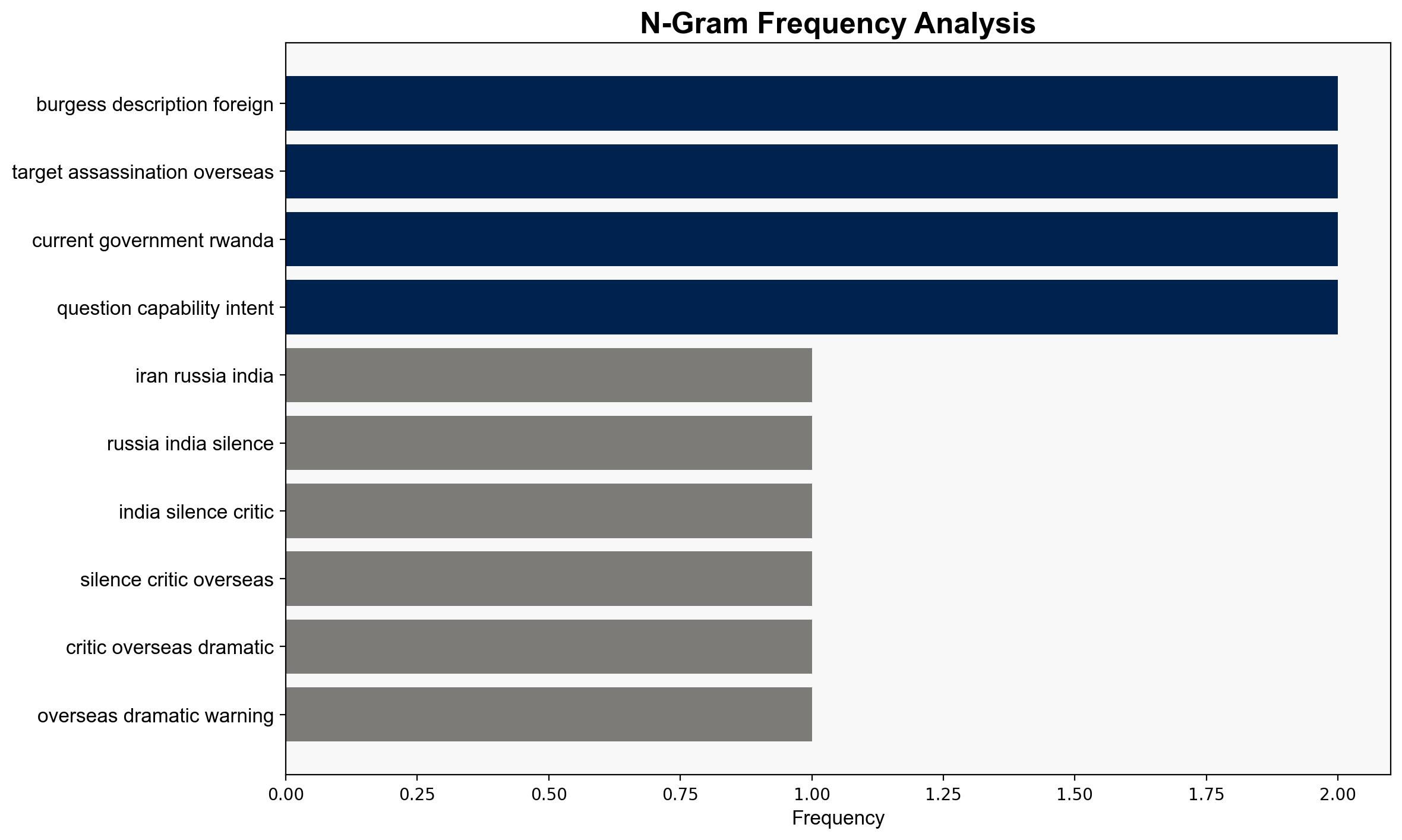Which countries could assassinate their dissidents in Australia – ABC News (AU)
Published on: 2025-11-05
Intelligence Report: Which countries could assassinate their dissidents in Australia – ABC News (AU)
1. BLUF (Bottom Line Up Front)
The most supported hypothesis is that Iran and Russia are the most likely countries to contemplate or conduct assassinations of dissidents in Australia. This assessment is based on historical patterns of behavior and current geopolitical tensions. Confidence level: Moderate. Recommended action: Enhance intelligence-sharing and protective measures for at-risk communities in Australia.
2. Competing Hypotheses
Hypothesis 1: Iran and Russia are the primary threats for potential assassination plots against dissidents in Australia. This is supported by their historical patterns of targeting dissidents overseas and recent geopolitical tensions involving these nations.
Hypothesis 2: India and China could also be potential threats, given recent allegations of overseas operations against dissidents and their strategic interests in Australia. However, the evidence is less direct compared to Iran and Russia.
Using ACH 2.0, Hypothesis 1 is more strongly supported due to consistent historical evidence and recent intelligence indicating active threats from Iran and Russia. Hypothesis 2 lacks the same level of direct evidence and historical precedent in the Australian context.
3. Key Assumptions and Red Flags
Assumptions include the belief that past behavior is a reliable predictor of future actions and that geopolitical tensions directly correlate with assassination risks. A red flag is the potential underestimation of India’s and China’s capabilities and intentions, given their evolving geopolitical strategies. There is also a risk of confirmation bias by focusing on nations with a known history of such actions.
4. Implications and Strategic Risks
The primary risk involves potential escalation of diplomatic tensions if an assassination attempt is linked to a foreign government. This could lead to retaliatory measures, impacting trade and diplomatic relations. There is also a risk of increased community tensions and potential radicalization within diaspora communities if protective measures are perceived as inadequate.
5. Recommendations and Outlook
- Enhance surveillance and intelligence-sharing with allied nations to monitor potential threats.
- Strengthen protective measures for at-risk individuals and communities, particularly those with known opposition to the Iranian and Russian governments.
- Scenario Projections:
- Best Case: Increased vigilance deters any assassination attempts, maintaining diplomatic stability.
- Worst Case: Successful assassination leads to significant diplomatic fallout and community unrest.
- Most Likely: Heightened security measures prevent immediate threats, but tensions remain high.
6. Key Individuals and Entities
Mike Burgess, Director-General of Security, is a key figure in assessing and responding to these threats. His statements provide insight into the perceived level of threat from specific nations.
7. Thematic Tags
national security threats, cybersecurity, counter-terrorism, regional focus




